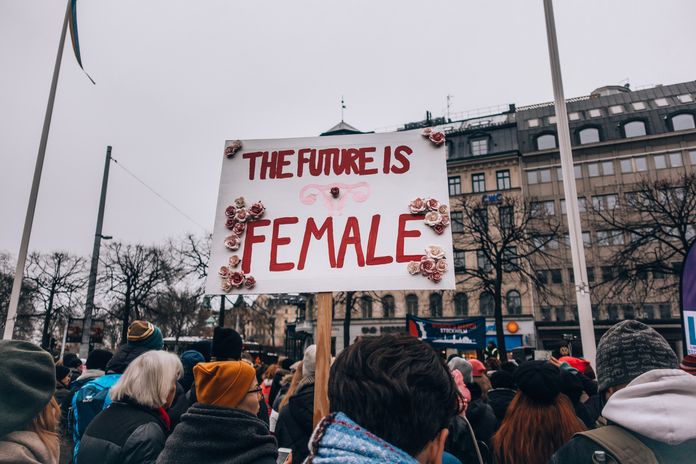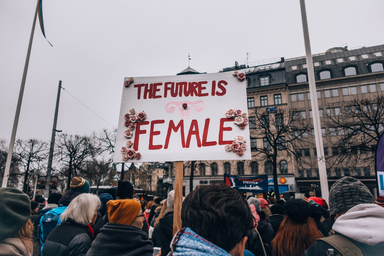International Women’s day is a focal point for the ongoing fight for gender equality. This year’s calls for women to ‘choose to challenge’ sexism suddenly became strikingly apparent with the incessant misogynoir in response to Meghan Markle’s interview and dismissal of women coming forward with their experiences of sexual assault, following the tragic death of Sarah Everard.
If the past week has shown us anything, we still have a long way to go in creating a world where women can live with safety and dignity. Though International women’s day is an opportunity to celebrate women’s achievements; it is in the light of these tragic circumstances that the dangers women still face have been at the forefront of my mind.
97% of women in the UK have been sexually harassed. 96% of these incidents were not reported. 80% of women have been harassed in public spaces, and the majority have been sexually harassed at work.
These Experiences are a fact of womanhood from a young age, as is the reinforcement that our stories won’t be believed. 72% of school pupils received a negative response from their schools when reporting harassment, a trend which continues into our adult lives.
Like most women, I was not surprised in the slightest that almost every woman has experienced sexual harassment. The threat of being violated in public has become as expected an ‘inconvenience’ as being caught in the rain or stuck in traffic. We clutch our keys tightly in our hand, avoid walking home in the dark, public transport that is too crowded or too quiet.
Deep-rooted mechanisms of everyday sexism are such a normalised part of our reality that we often don’t see ourselves as victims of harassment or abuse. But the trauma that is repeated through layers of dehumanisation are deeply rooted in our subconscious as women.
This is a trauma that is repeated each time we’re objectified, jeered at, not believed or when our ‘no’ is interpreted as ‘change my mind’. We navigate the world with a sense of caution that men do not have to consider.
I have become conscious this week, more than ever, of the fact that as a woman I am not granted the ability to live my life freely and without fear. The pervasive nature of misogyny must factor into my decisions, from dreams of solo travel, to simply not being able to study in the library late at night.
In this light, it is absurd to claim that women are truly liberated in 2021. As Laura Bates summarizes, “women are silenced by both the invisibility and the acceptability of the problem.” Without us speaking up, many men are either ignorant or complicit in the everyday violence women face.
With a rise of women speaking up, there has been a rise in our experiences being belittled, mocked or attempted to be ‘debunked’. Equally, without continuing these conversations the implications of a misogyny which is so integrated into the mundane, can become invisible, even to ourselves.
This is why international women’s day remains so important. This spirit of listening to women’s voices, in a world where they are so often ignored, is essential to provoke a lasting conversation. Though events of the last week have been overwhelming for many of us, the momentum of this year’s international women’s day and subsequent reclaim these streets movement is a powerful force.
Here, I hope that we can re-center the dialogue from how women can protect themselves, to changing the environment that continues to oppress us.



